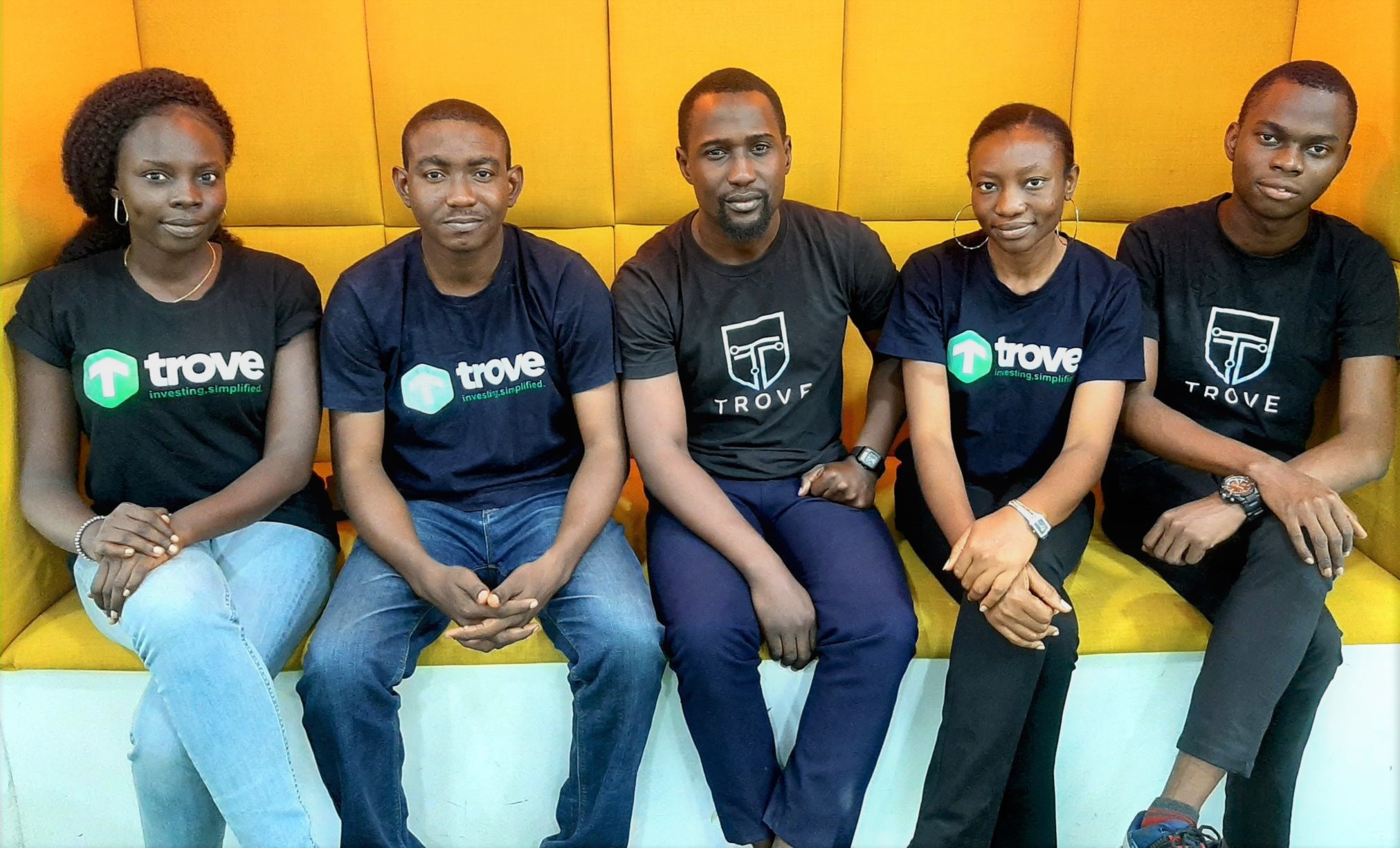The Global Share Dealing App Wins 2021 Ecobank Fintech Challenge
Trove Finance, a Nigerian-based global share dealing app has been named winner of the fourth edition of the annual Ecobank Fintech Challenge. The Ecobank Fintech Challenge is a flagship event of the Ecobank Group to support early stage fintechs from across the African continent. The virtual grand finale was streamed live from Accra in Ghana – and saw each of the five finalists pitching to the tech-savvy jury.
Trove Finance’s app enables African-based financial institutions and individuals to buy, sell and trade any publicly traded equity, bond or exchange traded fund across US, Chinese, Nigerian or other global stock markets, with as little as 1,000 Naira (circa US$2). Trove Finance’s solution has plugged a gap by providing an easy-to-use digital investment platform that is widening investment participation and inclusion by providing a secure and cost-effective alternative to the current paper-based investment process which is largely provided by brokers charging exorbitant fees.

Congratulating the finalists, Ade Ayeyemi, Chief Executive Officer, Ecobank Group, said: “The array of fintech services and solutions entered in this year’s edition was of such a high standard that the jury faced a really difficult task whittling the hundreds of entrants down to the final five and, ultimately, selecting Trove Finance as the overall winner. We will be inducting all five finalists into Ecobank’s Fintech Fellowship, during which they will receive mentoring and networking support, can utilise our Banking Sandbox to access our APIs to further develop their propositions, and could potentially partner with Ecobank to roll it out across our 33-country footprint. The Ecobank Fintech Challenge furthers our vision of treating fintechs as potential commercial partners with whom we can engage to provide innovative solutions to our customers.”
Read also Ecobank Offers Bancassurance to SMEs
The finalists of this year’s edition emerged from a hotly contested competition involving over 890 entrants from 44 countries. In addition to their induction into the Ecobank Fintech Challenge Fellowship programme, the first, second and third placed winners also received prizes of US$15,000, US$12,000 and US$10,000 respectively.
Oluwatomi Solanke, CEO of Trove, commented on the victory: “Winning the 2021 Ecobank Fintech Challenge is a real honour and publicly validates the huge potential of our app to widen asset ownership. I applaud the Ecobank Group for bringing African fintechs into the limelight through this competition and for providing us with continued support through its Fellowship programme. The opportunity to partner with Ecobank and roll-out our app across 33 sub-Saharan African countries would provide the icing on the cake by massively accelerating our growth.”
Read also Nigerian Fintech Explores Francophone Africa, Backs Ivory Coast’s CinetPay In $2.4m Seed Round
OKO Finance, from Mali, came second with its affordable crop insurance products – distributed via mobile phone – for smallholder farmers in Mali. OKO insurance products are automated and instantly indemnify farmers when they are affected by adverse weather, thanks to the constant monitoring of weather conditions via satellite data.
Read also Ecobank Fintech Challenge 2021 Launches For African Startups
Ghana’s Motito was third place with its solution promoting financial inclusion in Africa through a ‘buy-now-pay-later’ platform that enables small businesses to offer interest-free credit at the point of sale to customers.
Kelechi Deca

Kelechi Deca has over two decades of media experience, he has traveled to over 77 countries reporting on multilateral development institutions, international business, trade, travels, culture, and diplomacy. He is also a petrol head with in-depth knowledge of automobiles and the auto industry




